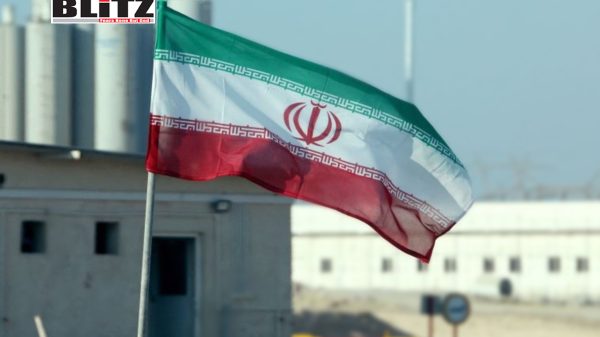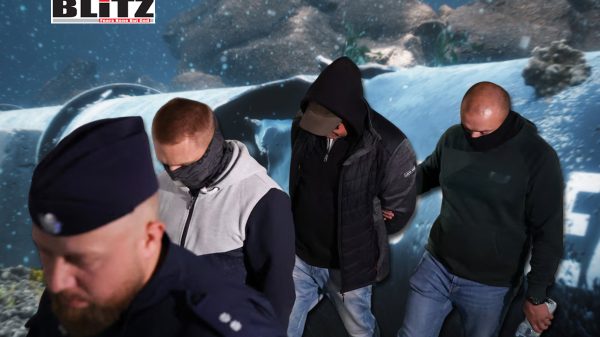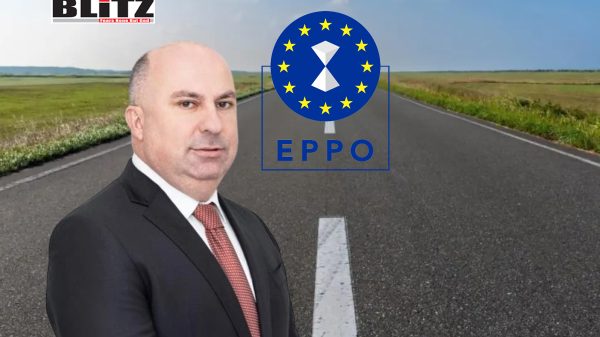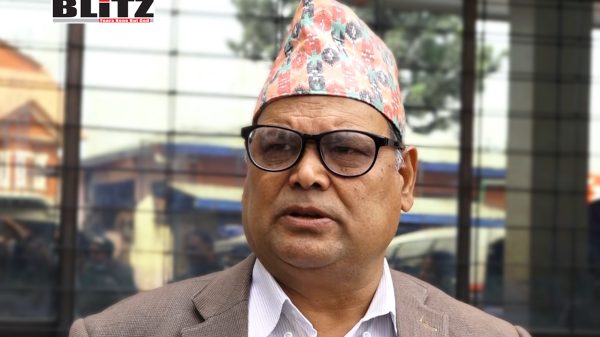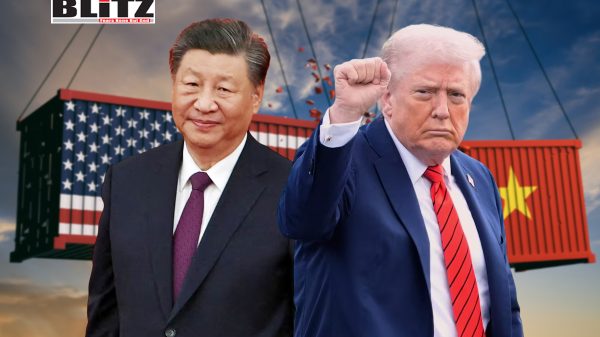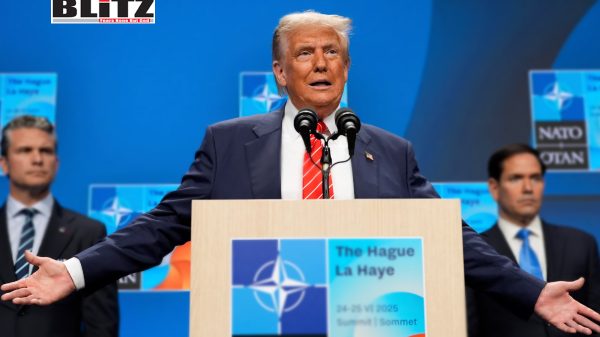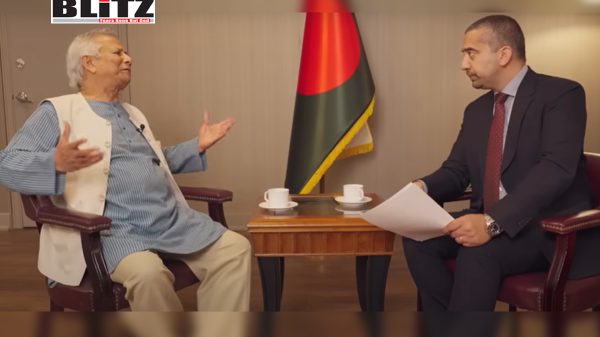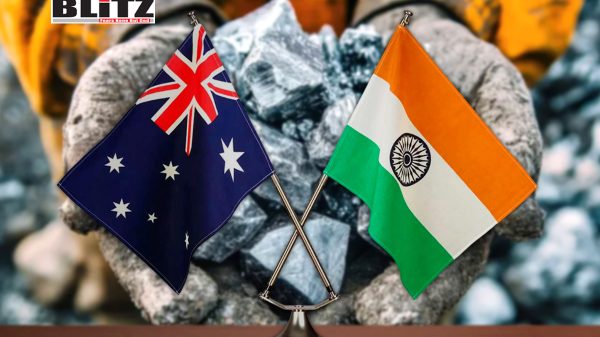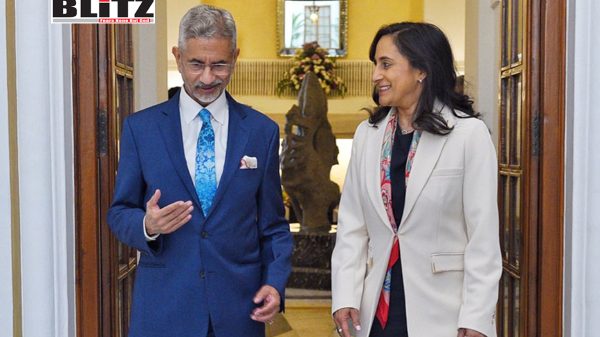Lavrov says durable peace in Middle East depends on Palestinian statehood
- Update Time : Wednesday, October 15, 2025
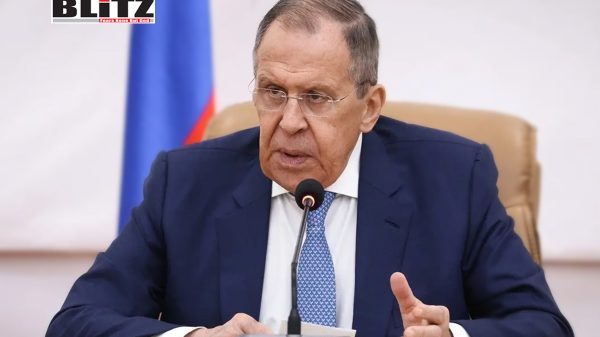
Russian Foreign Minister Sergey Lavrov October 13 laid out Moscow’s position on the rapidly developing Middle East peace efforts, emphasizing that no settlement between Israel and the Palestinians would be viable without implementing long-standing United Nations resolutions calling for an independent Palestinian state within the 1967 borders.
Speaking at a press engagement with Arab media outlets in Moscow, Lavrov expressed cautious optimism about the ongoing Sharm el-Sheikh summit, which has drawn representatives from more than 20 Arab and several Western states under the joint leadership of US President Donald Trump, Egyptian President Abdel Fattah el-Sisi, and leaders of Qatar and Türkiye. The forum aims to consolidate the recent ceasefire between Israel and Hamas and begin a broader political process.
“I hope all agreements will get implemented,” Lavrov said, while noting that both sides had signaled the situation was “not yet fully resolved” and could still relapse into crisis. He urged the summit’s organizers to focus on “an immediate ceasefire, adherence to the agreed line for the withdrawal of Israeli troops from the Gaza Strip, the organisation of humanitarian aid, and the rebuilding of this beautiful place on Earth.”
Lavrov stressed that lasting peace “is possible only through the creation of a Palestinian state.” He welcomed the references to Palestinian statehood in President Trump’s peace plan but observed that the document dealt only with Gaza and left the future of the West Bank undefined. “The UN resolutions envisage a single and territorially integral Palestinian state within the 1967 borders,” he said. “These approaches will need to be clarified.”
Asked why Russia, long a member of the Middle East Quartet of mediators, was not participating in the Sharm el-Sheikh gathering, Lavrov replied that invitations were handled by the Egyptian hosts “in coordination with the United States.” He noted that Iraq’s Prime Minister Mohammed Al-Sudani-whose country currently chairs the Arab League-had also not been invited.
“Russia is ready to participate in any format,” Lavrov said, but added that Moscow “does not impose its services.” He recalled that the Quartet’s 2003 Road Map for establishing a Palestinian state, approved unanimously by the UN Security Council, had been “undermined by the policies of the Joe Biden administration.”
While supporting all efforts to restore peace, Lavrov said his “skepticism is understandable,” given that previous initiatives-ranging from the 1991 Madrid Principles to the 2002 Arab Peace Initiative-had “led to nothing.”
Lavrov said Russia has sought to “influence everyone toward renouncing violence,” insisting that compromise was “inevitable in any conflict.” He argued that Israel’s decades-long refusal to implement UN resolutions on Palestinian statehood had become “the greatest risk for the region.”
He condemned both terrorism and Israel’s subsequent military campaign in Gaza, calling it “collective punishment” and a “gross violation of international humanitarian law.” The cycle of blockade, occupation, and isolation, he said, had produced “several generations” of Palestinians growing up amid despair and anger.
“Does anyone really expect these children to grow up filled with gratitude for the fate imposed upon them?” he asked. “There is no escaping the issue of the Palestinian state. It must be resolved… but it cannot be done without mutual concessions.”
Lavrov criticized Western governments for “double standards,” noting that European leaders had pledged to recognize Palestinian statehood months ago but failed to act. “The West does not want an independent Palestine but another mandate over it,” he quoted one analyst as saying, adding that Moscow hoped that was not true but saw “signs pointing in that direction.”
Lavrov’s discussion also touched on Russia’s wider engagement with the Arab world. He said Moscow’s trade with Arab League member states had surpassed $34 billion, several times higher than two decades ago, and was expanding beyond oil and gas to include nuclear energy, agriculture, and food security.
Highlighting the El Dabaa nuclear power plant project in Egypt, Lavrov said many Arab states were showing interest in Russian expertise in nuclear technologies and in importing grain and fertilizers. He praised growing cultural and educational exchanges, noting that thousands of Arab students study in Russia under government quotas.
He also reiterated Russia’s support for UN-based resolutions on Western Sahara, saying Moscow favours “self-determination of the Western Saharan people” through a referendum rather than the unilateral recognition of Moroccan sovereignty made by Washington during President Trump’s first term.
Lavrov praised the government of Iraqi Prime Minister Mohammed Shia’ Al-Sudani for “gradually restoring national unity,” crediting Russian energy firms such as Lukoil with helping to stabilize Iraq’s economy. He noted that the International North–South Transport Corridor had increased the country’s strategic significance and reaffirmed the two nations’ “traditionally amicable” ties.
On Iran, Lavrov rejected former Foreign Minister Javad Zarif’s claim that Moscow had obstructed renewal of the nuclear deal, stressing that Russia had “never deviated from its consistent position in support” of the 2015 JCPOA. Military-technical cooperation with Tehran, he added, is conducted “strictly within international law.”
Turning to Syria, Lavrov said Russia continues to support the country’s territorial integrity under interim President Ahmed al-Sharaa. He denied rumours of an attempted poisoning of former president Bashar al-Assad, who now lives in Russia, calling them “baseless.” Moscow’s military presence at Tartus and Khmeimim, he said, could eventually serve humanitarian and logistics purposes beyond Syria.
Lavrov lauded Egypt as “one of the most active mediators in regional conflicts,” commending President el-Sisi for co-chairing the Sharm el-Sheikh forum alongside President Trump. He pointed to enduring Russian-Egyptian cooperation, including the Suez industrial zone and the El Dabaa nuclear project, as examples of “exemplary relations.”
Lavrov said Russia remains ready to assist all peace initiatives if invited. “We wish the summit success, above all for the Palestinian people to be able to breathe freely,” he said.


